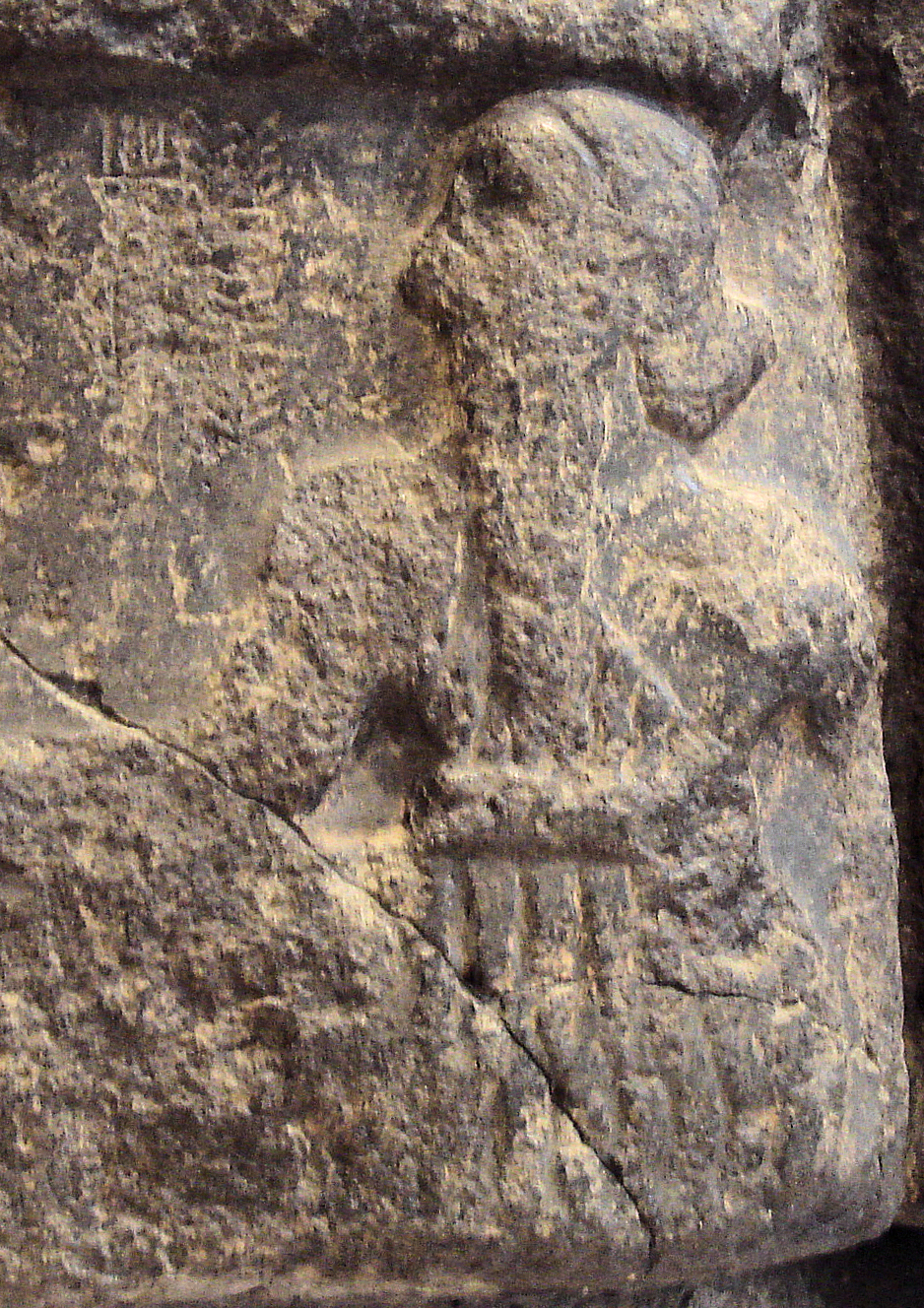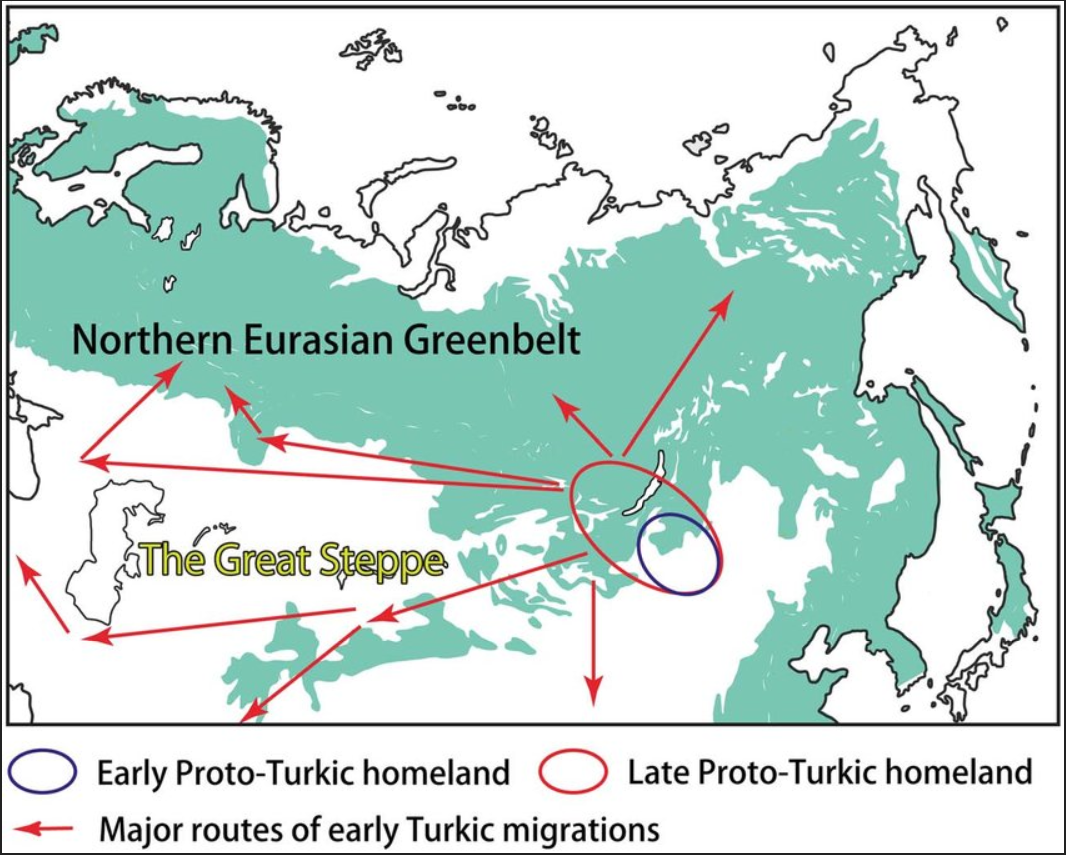|
Kemalist Historiography
Kemalist historiography () is a narrative of history mainly based on a six-day speech delivered by Mustafa Kemal tatürkin 1927, promoted by the political ideology of Kemalism, and influenced by Atatürk's cult of personality. It asserts that the Republic of Turkey represented a clean break with the Ottoman Empire, and that the Republican People's Party did not succeed the Committee of Union and Progress (CUP). Kemalist historiography views Ottoman traditions as an obstacle to the introduction of Westernising political reforms, and instead adopts the heritage of pre-Islamic Turks, which it considers to be naturally progressive, culturally pure and uncorrupted. The historiography magnifies Mustafa Kemal's role in the World War I and Turkish War of Independence, and omits or attempts to justify the suffering of religious and ethnic minorities during the late Ottoman Empire and the Turkish Republic, often viewing them as a security threat to the state, or rebels instigated by ... [...More Info...] [...Related Items...] OR: [Wikipedia] [Google] [Baidu] |
Nutuk
''Nutuk'' (, known as ''A Speech'' or ''The Speech'' in English) was a speech delivered by Ghazi Mustafa Kemal from 15 to 20 October 1927, at the second congress of Republican People's Party. The speech covered the events between the start of the Turkish War of Independence on 19 May 1919, and the foundation of the Republic of Turkey, in 1923. It took thirty-six hours (on a 6 day span) to be read by Atatürk, and became a foundation of Kemalist historiography. Nutuk marked a turning point of Turkish nationalism by introducing a series of new myths and concepts into the vernacular of public discourse, such as republic, democracy, sovereignty of the nation, and secularism. Atatürk designated these concepts as the 'most precious treasures' of Turkish people, the 'foundations' of their new state, and the preconditions of their future 'existence' in his speech. Context Mustafa Kemal begins his speech by describing the situation of the Ottoman Empire when he landed at Samsun to ... [...More Info...] [...Related Items...] OR: [Wikipedia] [Google] [Baidu] |
Osman Turan
Osman is the Persian and Turkish transliteration and derived from the Arabic masculine given name Uthman ( ''‘uthmān'') or an English surname. Osman or Osmans may refer to: People * Osman (name), people with the name and surname * Osman I (1258–1326), founder of the Ottoman Empire * Osman II (1604–1622), Ottoman sultan * Osman III (1699–1757), Ottoman sultan * Osmans, another spelling of Ottomans * Osman I of the Maldives, the Sultan of the Maldives in 1377 * Osman II of the Maldives, the Sultan of Maldives from 1420 to 1421 * Mir Osman Ali Khan, 7th and last Nizam (ruler) of Hyderabad Places * Osmanabad, a district of Maharashtra, India * Osmannagar (alternative name for Sultanabad, Karimnagar), village located in Karimnagar district, Andhra Pradesh, India * Osman, Iran, a village in Kermanshah Province, Iran * Osman, Kurdistan, a village in Kurdistan Province, Iran * Osman, Wisconsin, United States Fish * False osman (''Schizopygopsis stoliczkai'') * Naked osman ... [...More Info...] [...Related Items...] OR: [Wikipedia] [Google] [Baidu] |
Celts
The Celts ( , see Names of the Celts#Pronunciation, pronunciation for different usages) or Celtic peoples ( ) were a collection of Indo-European languages, Indo-European peoples. "The Celts, an ancient Indo-European people, reached the apogee of their influence and territorial expansion during the 4th century BC, extending across the length of Europe from Britain to Asia Minor."; . "[T]he Celts, were Indo-Europeans, a fact that explains a certain compatibility between Celtic, Roman, and Germanic mythology."; . "The Celts and Germans were two Indo-European groups whose civilizations had some common characteristics."; . "Celts and Germans were of course derived from the same Indo-European stock."; . "Celt, also spelled Kelt, Latin Celta, plural Celtae, a member of an early Indo-European people who from the 2nd millennium bce to the 1st century bce spread over much of Europe." in Europe and Anatolia, identified by their use of Celtic languages and other cultural similarities.. "C ... [...More Info...] [...Related Items...] OR: [Wikipedia] [Google] [Baidu] |
Akkadian Empire
The Akkadian Empire () was the first known empire, succeeding the long-lived city-states of Sumer. Centered on the city of Akkad (city), Akkad ( or ) and its surrounding region, the empire united Akkadian language, Akkadian and Sumerian language, Sumerian speakers under one rule and exercised significant influence across Mesopotamia, the Levant, and Anatolia, sending military expeditions as far south as Dilmun and Magan (civilization), Magan (modern United Arab Emirates, Saudi Arabia, Bahrain, Qatar and Oman) in the Arabian Peninsula.Mish, Frederick C., Editor in Chief. "Akkad" ''iarchive:webstersninthne000merr, Webster's Ninth New Collegiate Dictionary''. ninth ed. Springfield, MA: Merriam-Webster 1985. ). The Akkadian Empire reached its political peak between the 24th and 22nd centuries BC, following the conquests by its founder Sargon of Akkad. Under Sargon and his successors, the Akkadian language was briefly imposed on neighboring conquered states such as Elam and Guti ... [...More Info...] [...Related Items...] OR: [Wikipedia] [Google] [Baidu] |
Sumer
Sumer () is the earliest known civilization, located in the historical region of southern Mesopotamia (now south-central Iraq), emerging during the Chalcolithic and Early Bronze Age, early Bronze Ages between the sixth and fifth millennium BC. Like nearby Elam, it is one of the Cradle of civilization, cradles of civilization, along with ancient Egypt, Egypt, the Indus Valley Civilisation, Indus Valley, the Erligang culture of the Yellow River valley, Caral-Supe civilization, Caral-Supe, and Mesoamerica. Living along the valleys of the Tigris and Euphrates rivers, Sumerian farmers grew an abundance of grain and other crops, a surplus of which enabled them to form urban settlements. The world's earliest known texts come from the Sumerian cities of Uruk and Jemdet Nasr, and date to between , following a period of proto-writing . Name The term "Sumer" () comes from the Akkadian Empire, Akkadian name for the "Sumerians", the ancient non-Semitic languages, Semitic-speaking inhabitan ... [...More Info...] [...Related Items...] OR: [Wikipedia] [Google] [Baidu] |
Turkic Migrations
The Turkic migrations were the spread of Turkic tribes and Turkic languages across Eurasia between the 4th and 11th centuries. In the 6th century, the Göktürks overthrew the Rouran Khaganate in what is now Mongolia and expanded in all directions, spreading Turkic culture throughout the Eurasian steppes. Although Göktürk empires came to an end in the 8th century, they were succeeded by numerous Turkic empires such as the Uyghur Khaganate, Kara-Khanid Khanate, Khazars, and the Cumans. Some Turks eventually settled down into sedentary societies such as the Qocho and Ganzhou Uyghurs. The Seljuq dynasty invaded Anatolia starting in the 11th century, resulting in permanent Turkic settlement and presence there. Modern nations with large Turkic populations include Kyrgyzstan, Turkmenistan, Turkey, Azerbaijan, Uzbekistan, and Kazakhstan, and Turkic populations also exist within other nations, such as Chuvashia, Bashkortostan, Tatarstan and the Sakha Republic of Siberia in Russia, Norther ... [...More Info...] [...Related Items...] OR: [Wikipedia] [Google] [Baidu] |
Hittites
The Hittites () were an Anatolian peoples, Anatolian Proto-Indo-Europeans, Indo-European people who formed one of the first major civilizations of the Bronze Age in West Asia. Possibly originating from beyond the Black Sea, they settled in modern-day Turkey in the early 2nd millennium BC. The Hittites formed a series of Polity, polities in north-central Anatolia, including the kingdom of Kussara (before 1750 BC), the Kültepe, Kanesh or Nesha Kingdom (–1650 BC), and an empire centered on their capital, Hattusa (around 1650 BC). Known in modern times as the Hittite Empire, it reached its peak during the mid-14th century BC under Šuppiluliuma I, when it encompassed most of Anatolia and parts of the northern Levant and Upper Mesopotamia, bordering the rival empires of the Hurri-Mitanni and Assyrians. Between the 15th and 13th centuries BC, the Hittites were one of the dominant powers of the Near East, coming into conflict with the New Kingdom of Egypt, the Middle Assyrian Empi ... [...More Info...] [...Related Items...] OR: [Wikipedia] [Google] [Baidu] |
Gender Politics
Identity politics is politics based on a particular identity, such as ethnicity, race, nationality, religion, denomination, gender, sexual orientation, social background, political affiliation, caste, age, education, disability, opinion, intelligence, and social class. The term encompasses various often-populist political phenomena and rhetoric, such as governmental migration policies that regulate mobility and opportunity based on identities, left-wing agendas involving intersectional politics or class reductionism, and right-wing nationalist agendas of exclusion of national or ethnic "others." The term ''identity politics'' dates to the late twentieth century, although it had precursors in the writings of individuals such as Mary Wollstonecraft and Frantz Fanon. Many contemporary advocates of identity politics take an intersectional perspective, which they argue accounts for a range of interacting systems of oppression that may affect a person's life and originate from t ... [...More Info...] [...Related Items...] OR: [Wikipedia] [Google] [Baidu] |
Yeşim Arat
Yeşim Arat (born September 5, 1955), is a Turkish political scientist and author specialized in gender politics, Turkish politics, women in Turkish politics, and women's movements in Turkey. She is a professor in the department of political science and international relations at Boğaziçi University. Early life and education Yeşim Arat was born on September 5, 1995. She completed a B.A. in political science and economics at Yale University in 1978. Arat earned a M.A. (1980) and Ph.D. (1983) in the department of politics at Princeton University. Her dissertation was titled, ''Women in Turkish Politics''. Arat's doctoral advisor was John Waterbury. Career Arat joined the faculty at Boğaziçi University in 1983 as an assistant professor in the department of political science and international relations. She was promoted to associate professor in 1990 and professor in May 1996. Arat served as the vice rector for academic affairs (provost) from August 2008 to August 2012. Sh ... [...More Info...] [...Related Items...] OR: [Wikipedia] [Google] [Baidu] |
Ziya Gökalp
Mehmet Ziya Gökalp (born Mehmed Ziya, 23 March 1876 – 25 October 1924) was a Turkish sociologist, writer, poet, and politician. After the 1908 Young Turk Revolution that reinstated constitutionalism in the Ottoman Empire, he adopted the pen name Gökalp ("celestial hero"), which he retained for the rest of his life. As a sociologist, Ziya Gökalp was influential in the negation of Islamism, pan-Islamism, and Ottomanism as ideological, cultural, and sociological identifiers. In a 1936 publication, sociologist Niyazi Berkes described Gökalp as "the real founder of Turkish sociology, since he was not a mere translator or interpreter of foreign sociology". Gökalp's work was particularly influential in shaping the reforms of Mustafa Kemal Atatürk; his influence figured prominently in the development of Kemalism, and its legacy in the modern Republic of Turkey. Influenced by contemporary European thought, particularly by the sociological view of Émile Durkheim, Gökalp rejec ... [...More Info...] [...Related Items...] OR: [Wikipedia] [Google] [Baidu] |
Armenian Genocide Denial
Denial of the Armenian genocide is the negationist claim that the Ottoman Empire and its ruling party, the Committee of Union and Progress (CUP), did not commit genocide against its Armenian citizens during World War I—a crime documented in a large body of evidence and affirmed by the vast majority of scholars. The perpetrators denied the genocide as they carried it out, claiming that Armenians in the Ottoman Empire were resettled for military reasons, not exterminated. In its aftermath, incriminating documents were systematically destroyed. Denial has been the policy of every government of the Ottoman Empire's successor state, the Republic of Turkey, . Borrowing arguments used by the CUP to justify its actions, Armenian genocide denial rests on the assumption that the deportation of Armenians was a legitimate state action in response to a real or perceived Armenian uprising that threatened the empire's existence during wartime. Deniers assert that the CUP intende ... [...More Info...] [...Related Items...] OR: [Wikipedia] [Google] [Baidu] |







